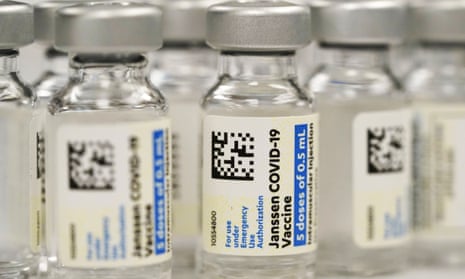US regulators on Thursday strictly limited who can receive Johnson & Johnson’s Covid-19 vaccine due to a rare but serious risk of blood clots.
The Food and Drug Administration said the shot should only be given to adults who cannot receive a different vaccine or specifically request Johnson & Johnson’s vaccine. US authorities for months have recommended that Americans starting their Covid-19 vaccinations use the Pfizer or Moderna shots instead.
FDA officials said in a statement that they decided to restrict Johnson & Johnson’s vaccine after taking another look at data on the risk of life-threatening blood clots within two weeks of vaccination.
The decision is the latest restriction to hit Johnson & Johnson’s one-dose vaccine, which has long been overshadowed by the more effective two shots from Pfizer and Moderna.
In December, the Centers for Disease Control and Prevention (CDC) recommended prioritizing the Moderna and Pfizer shots over Johnson & Johnson’s because of its safety concerns. Previously US officials had treated all three vaccines similarly because they’d each been shown to offer strong protection.
But follow-up studies have consistently shown lower effectiveness for Johnson & Johnson’s vaccine. And while the blood clots seen with Johnson & Johnson’s shot are rare, officials say they are still occurring.
